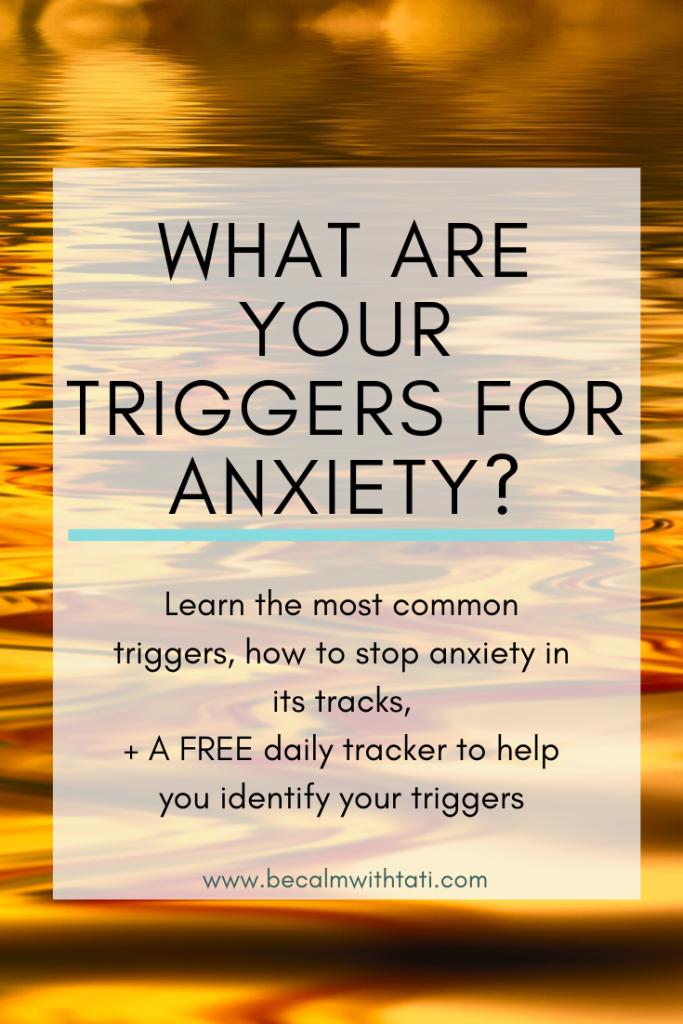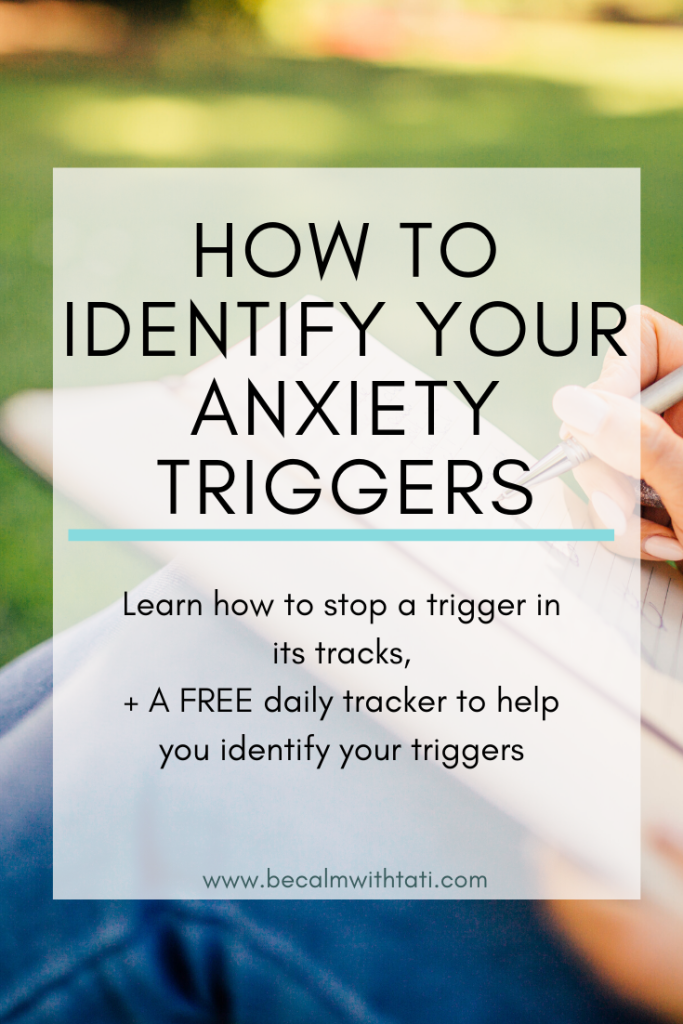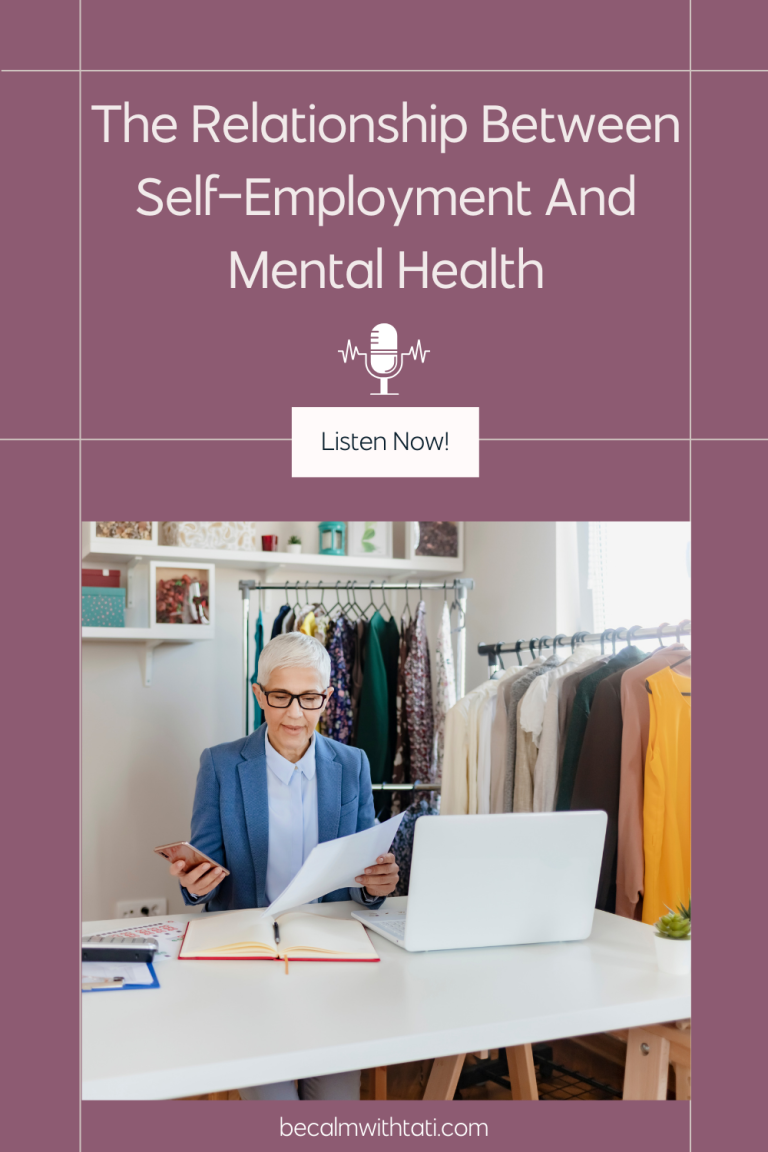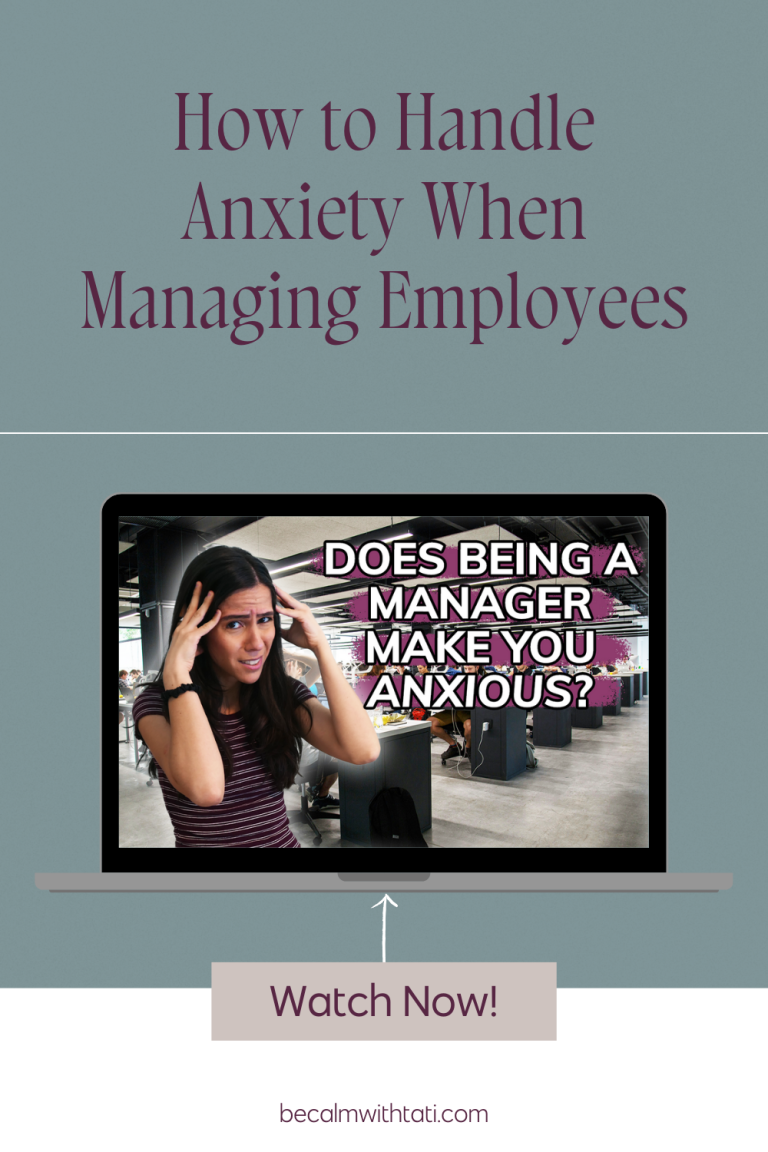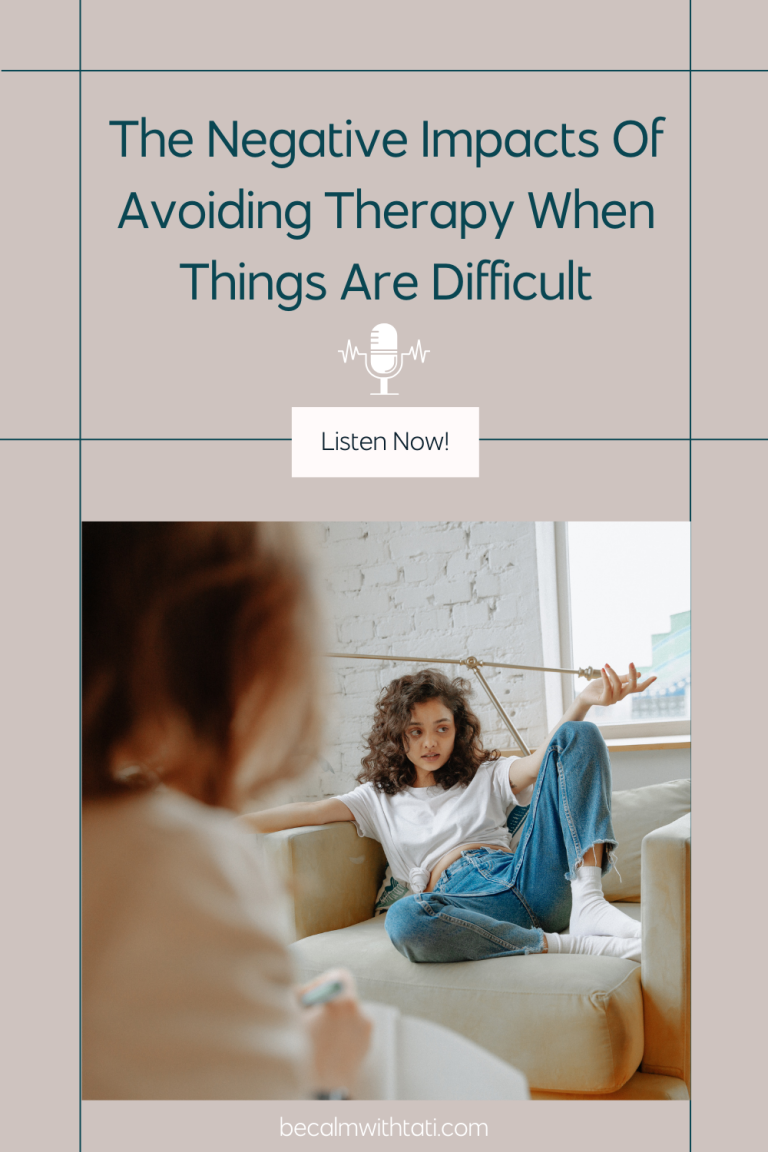The First Step To Decreasing Your Anxiety
Every person has different anxiety triggers and identifying them can be immensely helpful in decreasing the cascade that can occur as a result of a certain trigger.
Difficulty focusing, feeling as though you are in danger, uncomfortable physical sensations, a panic attack, brain fog, or swirling thoughts are but a few of the symptoms that can occur as a result of being triggered.
As a result, once this chain of events begins, it may be hard to find your way out. That is why it’s helpful to be aware of your triggers before they take control over your body, thoughts, and emotions.
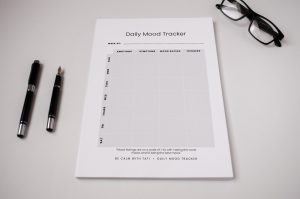
FREE Mood Tracker
Fill out the form below to get access to the free daily mood tracker + get access to my entire free resource library!
By filling out the form above, you also agree to receive my newsletter with high-functioning anxiety resources and tips. Your information is kept private and you can unsubscribe at any time!
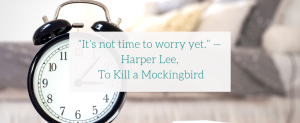
What Are Triggers?
When you pull the trigger of a gun, a mechanism is set off that results in the firing of a bullet out of the chamber. This small piece of the gun activates a chain of events that results in a bullet being fired.
Similarly, events and occurrences in your life that activate you will result in an internal chain of events that will influence you both internally and externally.
Bear with me here, because this may seem scientific and uninteresting- but it is truly helpful in understanding why external events trigger a resulting chain of events inside you.
“The first law of thermodynamics, also known as Law of Conservation of Energy, states that energy can neither be created nor destroyed; energy can only be transferred or changed from one form to another.”
Thoughts Are Energy
Your thoughts and perceptions are influenced by the world around you. When a thought is triggered by an external stimuli- reading these words on the screen or getting a notification on your phone- a series of signals is triggered in your brain.
Then, depending on how you choose to think about it, those thoughts influence your emotions, physical sensations, and behaviors.
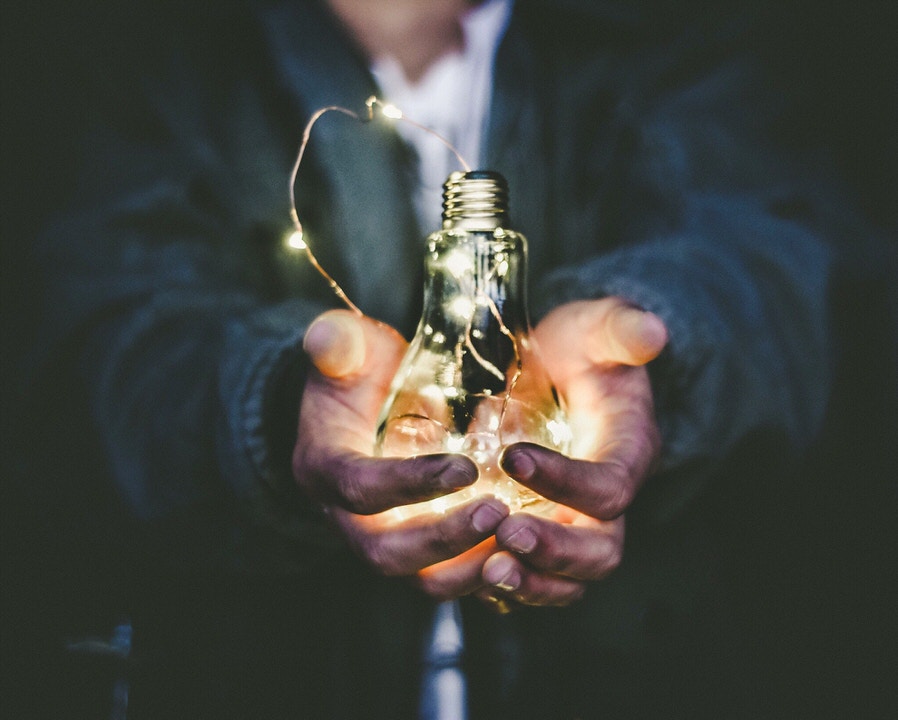
The Chain Of Events
The Trigger:
- An external event happens: you get a phone call from a friend, you see something you are fearful of, etc.
The Result:
- A chemical reaction occurs in your brain that causes you to have thoughts and perceptions about this event.
- Depending on your perception of the event:
- You may experience a change in emotion.
- You may experience a change in physical sensations.
- If you choose to act, your perception of the event will influence your behaviors.

FREE Mood Tracker
Fill out the form below to get access to the free daily mood tracker + get access to my entire free resource library!
By filling out the form above, you also agree to receive my newsletter with high-functioning anxiety resources and tips. Your information is kept private and you can unsubscribe at any time!
What Happens When You Are NOT Aware Of Your Triggers?
If you don’t know what your triggers are, then you may think you will be living a life of ignorant bliss. This is not the case.
You will have changes in emotions and sudden increases in anxiety, and you won’t even know why. You may feel frustrated, confused, and helpless as a result.
As you can see, ignorance is not bliss in this scenario. The more you know and the more awareness you have of your triggers, the more you can prevent a panic attack or other anxious feelings from occurring.
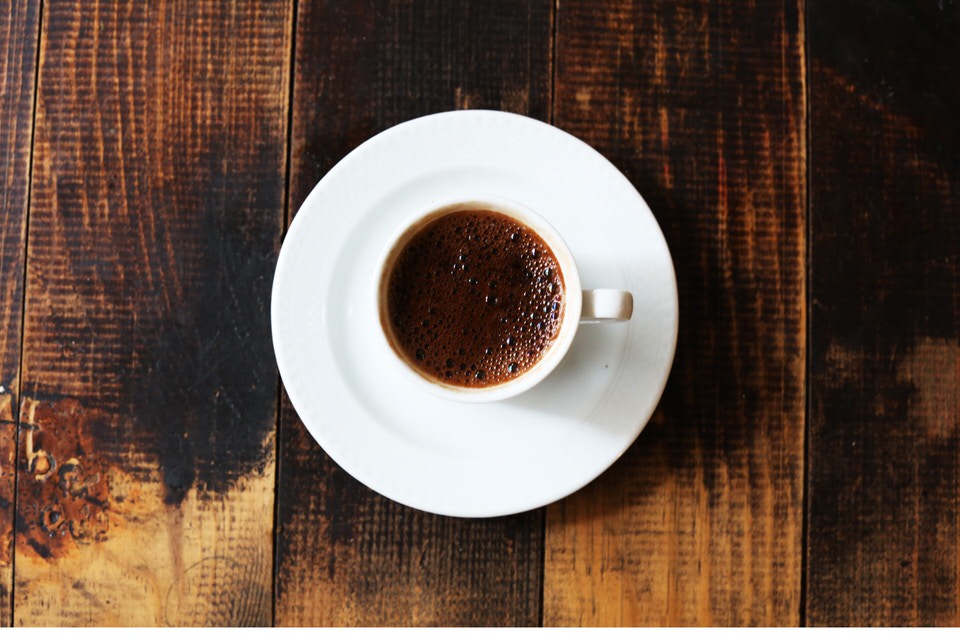
What Are Common Anxiety Triggers?
Every person is different, and I can never include a list comprehensive enough to cover every situation that may trigger anxiety for you.
But, there are some general situations that are common offenders in resulting anxiety episodes or panic attacks.
- Stress: Increased stress can lead to negative thoughts, overwhelm, and increase your anxiety.
- Caffeine: Coffee can induce increased anxiety, because caffeine is a stimulant and can result in increased heart rate and jitters. These physical sensations are similar to that of anxiety, and can result in more anxious thoughts.
- Lack of Sleep: Missing out on sleep can definitely have an influence on mental health, especially anxiety. Learn more here.
- Social Situations: Public events, performances, or public speaking can result in increased anxiety for a large number of people.
- Skipping Meals: When your body isn’t getting the nutrition and calories needed, this can result in a drop in blood sugar and physical sensations similar to anxiety. As a result, this can trigger anxious thoughts and feelings.
- Medications/Drugs: Check with your doctor first (as long as they are over the counter or prescribed- please seek treatment if you are having problems with addiction). There are certain over the counter, prescription, and illegal drugs that can increase anxiety.
- Health Problems: Receiving a serious health diagnosis, or even being fearful of one, can trigger anxiety and fear of death or a future of suffering.
- Conflict: Relationship, friend, or family conflict can increase negative thinking and predictions, which are factors that increase anxiety.
- Financial Stress: Having financial stress can cause you to feel helpless and make it difficult to think positively about the future. Both of these are potential symptoms and causes of anxiety.
Skills To Stop A Trigger In Its Tracks
When you start to experience anxiety it can feel like it is never going to stop. You have difficulty focusing, thinking, and processing what is going on objectively. Your emotions are on overdrive and your perception is skewed.
But, because your body is just focused on getting away from what it perceives to be as danger- you may not have awareness of how inaccurate your thoughts really are.
Keep these tips at the top of your mind once you have identified your triggers so that the next time you are confronted with one, you will know what to do to prevent your anxious thoughts and feelings from escalating.
- Take slow, long, deep breaths all the way to your belly to relax your body physically.
- Identify and label any emotions you are currently experiencing. Studies show that this helps to “turn down the amygdala alarm center response in the brain that triggers negative feelings.”
- Distract yourself with something positive- watching a funny video, going for a walk, or talking to a positive support.
- Grab a journal or your phone and write down what you are thinking or feeling.
- Engage in positive self-talk– remind yourself that you are safe and these are only thoughts.

Mood Tracking And Reflection To Help Identify Your Triggers
So how can you really identify what your triggers are? You may already have some ideas, and that is excellent. But even if you don’t have any ideas, it is not a lost cause.
Identifying and keeping track of your mood on a daily basis (even if only for a week) can really help you to start paying attention to your mood and what events trigger certain thoughts and emotions for you.
I have created a helpful and easy to use mood tracker just for this purpose.
This mood tracker includes one week (Monday-Saturday) of spots for you to jot down your mood 3 times a day- morning, afternoon, and evening. You can print out more than one if you decide to continue using it beyond one week.
It gives you space to write down the situation, your emotions, and a rating from 1-10 of your mood. In addition, there is space at the end of the week for weekly reflections, to help you look back and identify what situations influence your mood the most, the highs and lows of your week, and the emotions you experienced the most.
Identifying your anxiety triggers can take time, so start by bringing awareness to the moments where you are experiencing increased anxiety and question: what just happened, is about to happen, or am I afraid might happen that may be influencing my anxiety?

FREE Mood Tracker
Fill out the form below to get access to the free daily mood tracker + get access to my entire free resource library!
By filling out the form above, you also agree to receive my newsletter with high-functioning anxiety resources and tips. Your information is kept private and you can unsubscribe at any time!
I hope this information was helpful for you! Let me know in the comments below what helps you when your anxiety is triggered.
Sources:
